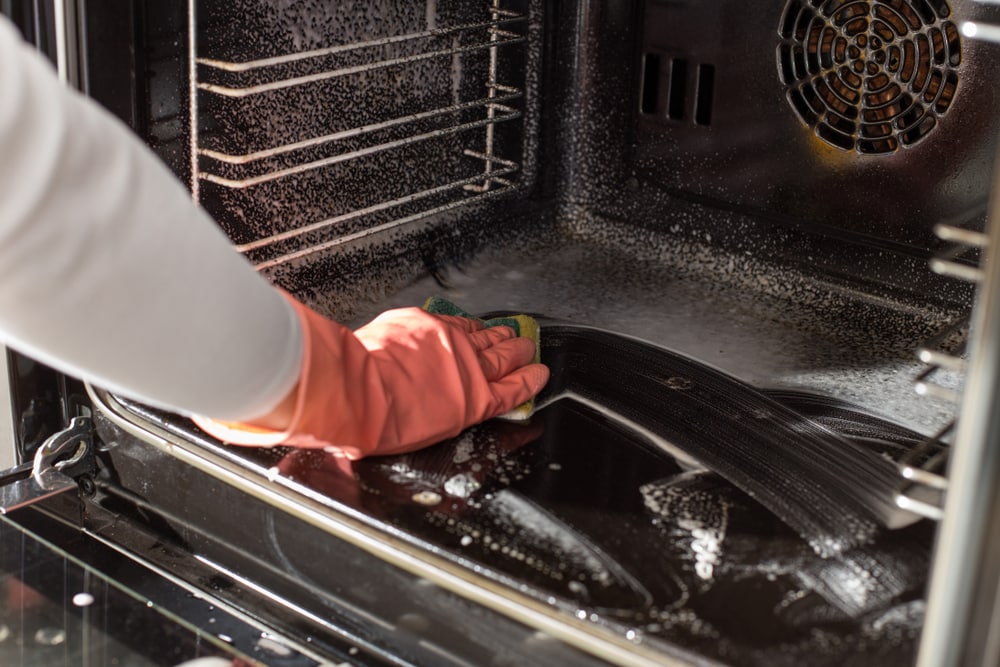
Ovens have become the most important part of every kitchen because that’s the ultimate necessity for cooking food. However, with regular use, the ovens get dirty, and one has to think about the oven cleaners. So, when it comes down to the oven cleaners, the oven users need to consider their configuration and ingredients because the ovens are sensitive, and their materials are prone to damage if they are exposed to restricted materials.
For this reason, many people think if the oven cleaners are acids or bases. If you are in the same boat and it’s impacting your decision to purchase the right oven cleaner, we are here with the details.
Oven Cleaner – Acid Or Base?
The majority of oven cleaners have a pH level of 11 to 13, which makes them alkaline. This is the prime reason that special oven cleaners are designed because the alkali has the capacity of cutting through the tough grime and grease built up in the oven. Having said that, it is needless to say that the value is quite high on the alkaline scale, which is why one needs to be extremely careful about using the oven cleaner to prevent harm.
As far as the acid or base dilemma is concerned, oven cleaner is a base because it has alkalis. For those who don’t know, alkalis are the bases that can dissolve in water and are perfect for canceling out acids. To illustrate, the oven cleaners are alkaline solutions and have pH levels ranging from 11 to 13. This is the prime reason that strong over cleaners with better alkaline pH are needed to ensure the grease and grime buildup is cleaned, even if it is severe.
The alkaline nature of the oven cleaners makes them suitable for cleaning oil, grease, dirt stains, and other organic products, which is why they make great oven cleaners. As far as the base is concerned, the traditional oven cleaners are designed with solvents and hydroxide. For this reason, the oven cleaners work the best when they are mixed in warm water. However, lye is not the right ingredient because it can cause damage to the oven, particularly if you are using self-cleaning ovens.
Common Ingredients Used In Oven Cleaners
The majority of oven cleaners are designed with a wide range of ingredients, such as;
1. Caustic Soda
It is also known as sodium hydroxide or lye, and it’s one of the most common ingredients of an oven cleaner. This ingredient is known for its higher corrosivity makes it a suitable option for cutting through the organic substances and oily substances that tend to build up in the ovens. For instance, it has a higher pH level of 14, making it a strong addition. In addition, it can be mixed up with water and will be able to dissolve gunk for easier cleaning. When it comes down to its purpose in an oven cleaner, it deletes the molecular bonds of the built-up material, which makes it easier to wipe off.
2. Ethers
Ethers are basically organic chemicals, and their structure makes them a suitable solvent with higher effectiveness. They have the capacity of dissolving the solute, promising easier oven cleaning. Even more, they are perfect for dissolving and cleaning waxes, oils, and grease. However, if your oven cleaner has ethers, you need to work quickly because they evaporate at room temperature.
3. Ethylene Glycol
This is a colorless and odorless liquid and is known for its higher toxicity levels. However, this toxicity is transferred to the oven cleaner, which softens the buildup to make sure it can be easily wiped and cleaned.
4. Methylene Chloride
It is also known as methylene dichloride, which is a colorless and volatile liquid. Given this configuration and structure, it can strip away the thick and stubborn layers of grime. However, you need to make sure that you are wearing the protective equipment because it can be harmful to inhale. In addition, you should always open the kitchen windows while cleaning the oven.
The bottom line is that the oven cleaners are base, and they are strong enough to clean the grime, grease, oils, and other food buildups in your oven.